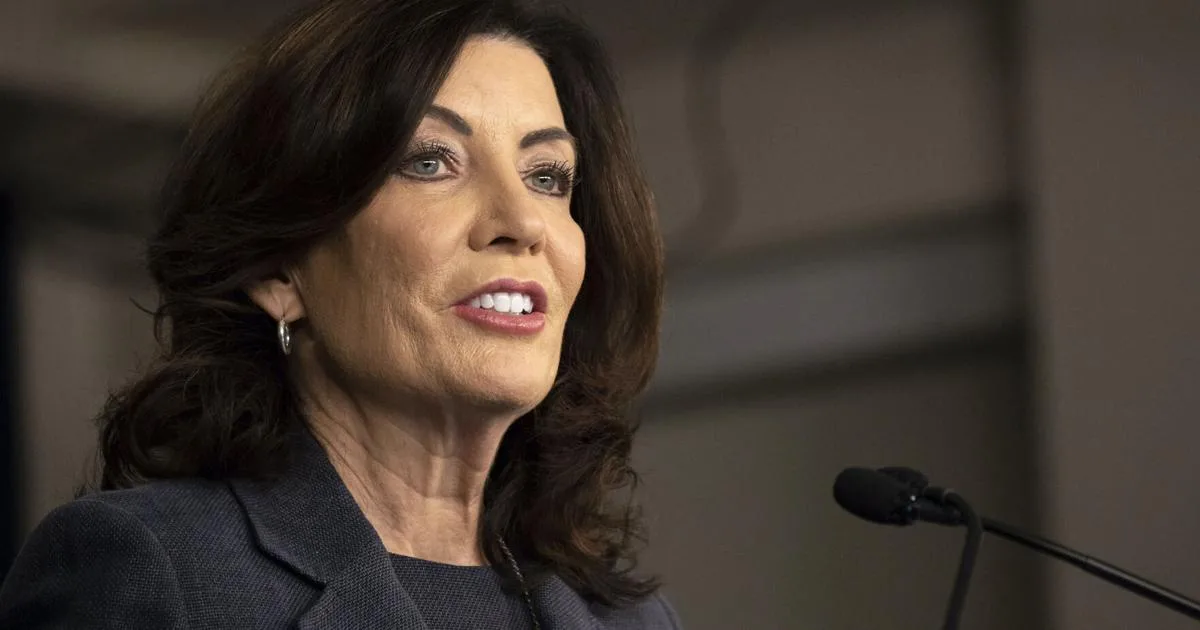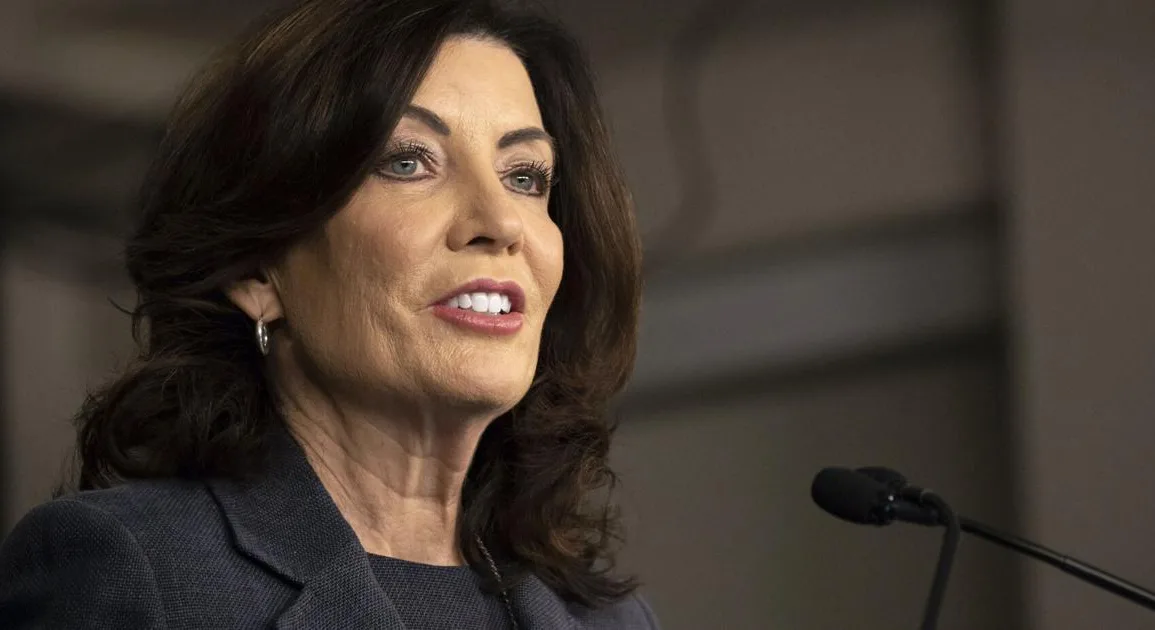
Gov. Kathy Hochul signed a bill into law Tuesday to create the country’s second statewide commission to study the possibility of reparations for people of African descent, due to the country’s history of slavery.
The controversial legislation notes the role slavery played in the establishment of the United States and history of slavery in the nation and will create a nine-member commission to study the lingering negative effects of slavery on people currently living in the state of New York. The commission will ultimately issue a report with recommendations to address these inequities, whether it be financial or other recommendations to address inequities.
Speaking in New York City, Hochul quoted Frederick Douglass, who said the duty of a true patriot who loves their country will rebuke it and not excuse its sins.
“Today, I challenge all New Yorkers to be the patriots and rebuke and not excuse our role in benefiting from the institution of slavery. According to the New York Historical Society, where we are today, as many as 20% of colonial New Yorkers — 20% of us — were enslaved Africans. A fifth of our entire population was in bondage,” Hochul said. “Beginning in 1630, some 15,000 people were, became, died and were buried in the African American, African burial ground, just feet from City Hall or from Broadway, and the Stock Exchange. Think about that. It’s not talked about a lot. That’s a problem.”
California, like New York, was not a slave state, but was the first state to pass similar legislation. California’s Black reparations task force released a two-year report to state lawmakers in June and recommended more than 100 programs and policies to address the harms of slavery. While financial restitution was considered, the task force ultimately declined to recommend any specific amount. The recommendations now go to California’s state Legislature and Gov. Gavin Newsom to take action. New York’s legislation will take a similar path. New York’s legislation requires the commission to deliver the report not later than one year after its first meeting.
Hochul said, while not a slave state, New York had a slave market where Wall Street stands today in New York City. During her speech on Tuesday, the governor acknowledged there will be expected pushback to the legislation.
“And to those who think that even having this conversation is unfair or wrong, I say it would be wrong not to have it, because to bend that arc of justice, we have to be willing to talk about the hard things, right? To debate them and argue them. It’s alright. We owe it to each other and our fellow New Yorkers to have a candid, good faith conversation,” she said. “I don’t want to pretend I didn’t have some concerns about this. I know many have. Here’s what I do know, to anyone who thinks that racism and hatred toward Blacks no longer exists, tell that to the families of the 10 victims in the grocery store in Tops at the massacre in Buffalo, who once again, once again, will be staring at empty chairs over their Christmas dinner.”
Following the bill’s signing, state Senate Minority Leader Rob Ortt doubled down on his opposition to the bill, calling it “unworkable.”
“As we’ve seen in California, I am confident this commission’s recommendations will be unrealistic, will come at an astronomical cost to all New Yorkers, and will only further divide our state,” the Republican said in a statement. “Instead of advancing a costly and divisive commission, we should direct our resources to places like the Niagara Falls Underground Railroad Heritage Center, which educates the public about our history and brings our community together.”
The legislation in New York was a priority for Democrats during this year’s legislative session and was sponsored by state Sen. James Sanders and Assemblywoman Michaelle Solages. Both Assembly Speaker Carl Heastie and state Senate Majority Leader Andrea Stewart-Cousins spoke at the bill’s signing on Tuesday. Both are the first Black person to hold their leadership positions.
Stewart-Cousins credited the governor for signing the controversial bill.
“The fact that we do have a governor who is honest enough to say out loud that this was hard, honest enough to say that she knows there will be pushback, but honest enough within herself to know that this has to be done, New York has a role to play. We have a role to play in telling the truth. We have a role to play in leading and the historic nature of the leadership of this state makes it imperative,” Stewart-Cousins said. “Who would have thought when there would be the first woman governor that there would be, not one, but two African American leaders of the state Legislature?”


